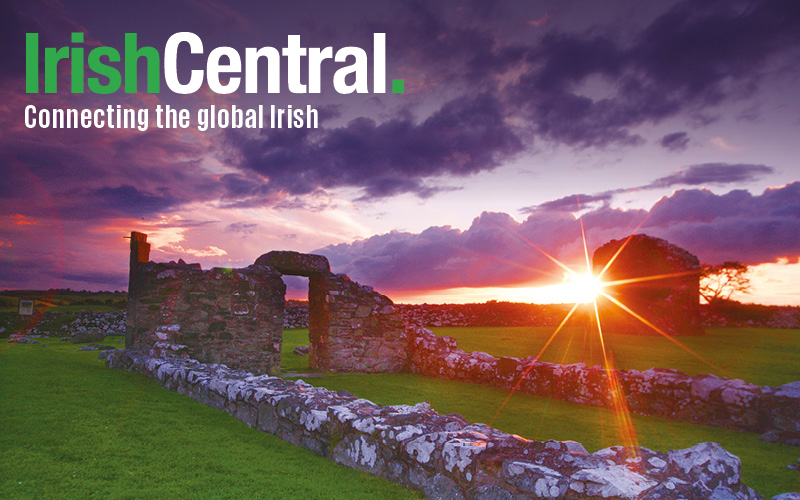For a country that spent the last 200 years watching millions of its sons and daughters depart for other shores in cycles of mass immigration, Ireland is now in the ironic position of being a prime destination for people fed up with their homelands.
With Donald Trump’s presidential prospects growing ever more confoundingly real and the shock victory of the “Leave” campaign in the Brexit vote, an increasing number of Americans and Brits are setting their sights on Ireland and Irish citizenship.
In the wake of the Brexit vote, there has also been a surge in interest from British citizens considering moving to Ireland or simply applying for an Irish passport in order to maintain the perks of EU citizenship.
International relocation experts MoveHub reported a big trend in site searches about moving to Ireland right after the Brexit results, including a 133% increase in requests to move to Dublin, a 250% increase in requests to move to Belfast, and a 900% increase in EU visa requests specifically for Ireland.
Back in March, Inishturk Island off the coast of Mayo, which has been beleaguered with a dwindling population, came up with the idea of promoting their island community as a refuge for those wary of a Trump victory.
Once word started spreading, the small group of people in charge of outreach on Inishturk became so inundated with requests for information that they struggled to keep up.
"We've been swamped with hundreds and hundreds of messages ever since the story was published in IrishCentral,” said Joe Whelan, a ferryman and shop worker who also helps run the island's Facebook page and official website.
"It's been impossible to answer every message, so we've put together a list of answers to 'frequently asked questions' on things like accommodation, employment and visas. About 300 subscribers have now signed up to that list."
Just this week, Irish real estate agents talked about the growing trend they’re witnessing of wealthy Americans snapping up property in Ireland as a contingency plan in case they are disappointed with the 2016 election results.
"The buyers we're seeing are extremely worried about what America will be like if Trump gets into power,” Roseanne De Vere Hunt, head of country homes, farms and estates at Sherry FitzGerald, told the Irish Independent.
“They are fearful of what will happen next, and are convinced things will be very unsettled if he makes it to the White House.
"Trump's comments about minorities certainly aren't helping the situation and are making a lot of people concerned. In the eyes of some Americans, Ireland remains a place of quiet and peace, and we don't have guns freely available.
”What’s more, the number of Irish passport applications from the US has jumped 14% since Trump entered the presidential race.
Irish Minister for Foreign Affairs Charlie Flanagan noted the spike in Irish passport requests.
“An unnecessary surge in applications for Irish passports will place significant pressure on the system and on turnaround times and is likely to impact those with a genuine need for passports to facilitate imminent travel plans,” he said in a statement, asking Brexit-inspired applicants to wait until after the summer rush.
The Irish economy stands to benefit greatly from the UK’s departure. With England set to leave the EU, Ireland is in line to be the English-speaking center of Europe. Earlier this week, the Irish Secretary of State to the EU rolled out the welcome mat for companies seeking to relocate their European headquarters from the UK.
But is this necessarily a positive thing for Ireland? Investment guru Andrew Amolis warned earlier this week that a wave of immigration into Ireland could spark enough panic to create a social environment similar to the one that brought about the Brexit vote in the UK in the first place.
"Ireland will be the only English speaking country left in the EU. This will likely result in a large inflow of EU migrants into Ireland as most EU citizens have English as their second language. Very few EU citizens know French, German or other European languages,” Amoils wrote.
"As a result, we expect over three million EU citizens to enter Ireland over the next five years - this may create some panic in Ireland and may cause them to hold their own referendum in a few years. Until the US election results in November and until the consequences of the Brexit vote become clear, this tide of would-be-immigrants and expats remains purely speculative.
But should a large portion of these people make good on their threats, promises and inquiries, it would be a phenomenon for Ireland unlike anything we’ve ever seen. It would be the opposite of the journeys of absolute necessity out of Ireland during the Famine and the recessions of the ‘50s, ‘80s and even the 2010s. It would be mass migration into Ireland out of choice and preference.
*Just in case you’re interested, here’s our guide on moving to Ireland in case of a Trump victory.




Comments